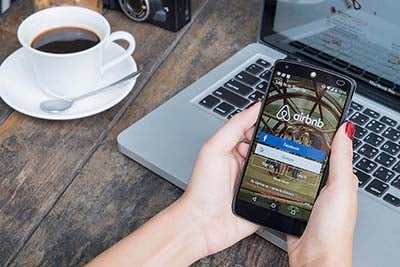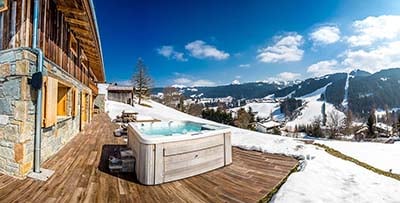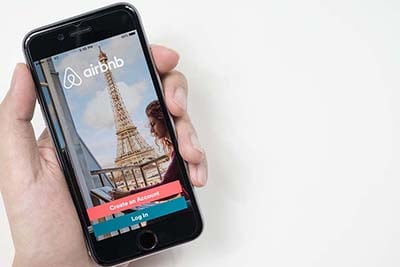Getting back up from the COVID-19 hit, Airbnb is turning to new objectives, the first one being its long awaited initial public offering on the Nasdaq.
The backstory for those who do not know
Airbnb was founded in 2008 under the name of “Airbed and Breakfast”. Why Airbed? because the first nights of Airbnb customers were spent on an airbed, in a living room. Not so fancy when you compare it to the luxurious villa you can rent on the platform, am I right?
Joe Gebbia and Brian Chesky needed a little extra cash – as poor students in design, you know – and decided to rent their 3rd room, offering a comfy mattress plus a breakfast (thus, Airbed and Breakfast). Many conferences were taking place in San Francisco and, being cheaper than a hotel – which at the time, were often are fully booked – they found a market. They kept focusing on offering the same cosy and inexpensive plan in crowed cities and financed their first website by selling cornflakes with Obama and McCain as logos. (Cap'n McCain and Obama O's)
The offer then expanded to entire apartments, houses, even castles (I swear), and the rest is history. They now offer you to "live like a Spanish local" by staying in a typical Barcelona flat in the center of the city, live in a cabin and go fishing in the American mid-west or experience a mountain weekend in a cosy chalet in Zermatt. Far from only offering accommodations, they also offer experiences, a new way to travel with more authenticity and conviviality. Better, cheaper, more fun - what else is there to be asked for?

What’s the news?
The home-sharing colossus will go public in December on the Nasdaq under the ticker symbol ABNB, with Goldman Sachs and Morgan Stanley as lead managers. The company filed for a 1 billion IPO and they would like to make 9.2 non-voting million shares available to the public.
Looking at their most recent numbers, we have a $700 million net loss for $2.5 billion revenue in the 9 first months of 2020, versus a net loss of $322 million with a $3.7 billion revenue for the previous year.
However, what’s surprising is that Airbnb reported a profit in its last quarter, $219 million in fact, although sales dropped 18% (to $1.34 billion). Remember that in the previous quarter, they had loss close to 600M. If we compare this to Q3 2019 though, they had a $227 million profit for $1.65 billion revenue, which was its only profitable quarter in 2019.
Airbnb had lost credit earlier this year as it had to reimburse guest loans with the help of high interest loans, which made its value plunge to 18M. (250M for hosts' loss!) The aim was to give back hosts 25% of what they would have received in the event of a normal cancellation. But apparently not everyone received the money, and some lawsuit were filed for this purpose.
However, news of the company going public really gave back investor's trust, and it value is expected to rise to $30 billion post IPO.

How did they manage to fight off the pandemic’s effect?
The "work from anywhere" trend helped as people were not looking for bedrooms so much, but places in small towns where they could work in the quiet. Revenue plummeted in the first quarter, but tripled back again in the summer when people thought "oh well, an Airbnb would be perfect to get away for the summer". While Covid did impact Airbnb, the rebound was quite impressive.
They said: "In early 2020, as COVID-19 disrupted travel across the world, Airbnb’s business declined significantly. But within two months, our business model started to rebound even with limited international travel, demonstrating its resilience. People wanted to get out of their homes and yearned to travel, but they did not want to go far or to be in crowded hotel lobbies. Domestic travel quickly rebounded on Airbnb around the world as millions of guests took trips closer to home. Stays of longer than a few days started increasing as work-from-home became work-from-any-home on Airbnb. We believe that the lines between travel and living are blurring, and the global pandemic has accelerated the ability to live anywhere."
It seems that people went AWAY from crowded pandemic-stricken cities to go back to rural areas where they could live in the quiet for a while. And what do you get when you plan to stay longer than a few days? That's right, an Airbnb.
Nevertheless, nothing comes without a cost, and Airbnb had to cut some to stay competitive. They had to lay off 25% of their workforce (1900 employees), cut-off non-core business activities such as marketing costs and reduced executive’s pays.
“The Covid-19 pandemic and the impact of actions to mitigate the Covid-19 pandemic have materially adversely impacted and will continue to materially adversely impact our business, results of operations, and financial condition,” they concluded.

Next steps and the future of the business model
Fun fact: The IPO filing paper start with "in the beginning" which are also the first words of the Bible. Seems like they want their clients and investors to feel as part of a big adventure. The filing papers were full of words such as “belonging, community, host, guest, together” making the reader feel like he was reading the takeaways of a summer camp. Anyways.
What would be interesting for Airbnb is to rethink their strategy and apply it on a broader scale. Hear me out.
Uber was initially meant to transport people, but since then, they expanded to food, cargo, medications, etc. It became the expert of transporting stuff. Amazon sold books for years, but expanding to selling, basically, almost anything you can buy. They’ve thus became the expert of e-commerce.
What if Airbnb took example from the other giants? It used to be a platform to share living places, but what if it could expand its reach? We could think of parking spots, storage, boats, bicycles, cars, instruments, and so on an so forth. What about owning all the items of an entire sharing economy menu? Different tabs for different objects and assets to rent, such as an unused basement for storage, a garden with a pool for a party, cars or EV for people that want to go away for a weekend, a tent for the one time camper.
Possibilities are endless. By going global on the sharing economy, they would not only be able to shield themselves from their high dependency on travel, they would also go with the trend of producing less and using objects with more purpose and over a longer time.

Sources:
Airbnb files for its long-awaited IPO, in Axios
“The stock ticker should be KEYS” — Airbnb’s IPO. Mars eats Kind Bars. Amazon launches an ePharmacy., in Snacks Daily Podcast
Airbnb files to go public, turned a profit last quarter, in CNBC
Airbnb files to go public as the pandemic rages on, in CNN News
Living and Dying on Airbnb, in Medium
Airbnb plans to file for its more than $30 billion IPO as early as next week despite pandemic headwinds, according to report, in Markets Insider
Airbnb Files For IPO Likely To Value The Company Around $30B, in PYMNTS
Read our next article: Tide turns for Turkish lira after interest rates yanked to 15% #USDTRY





